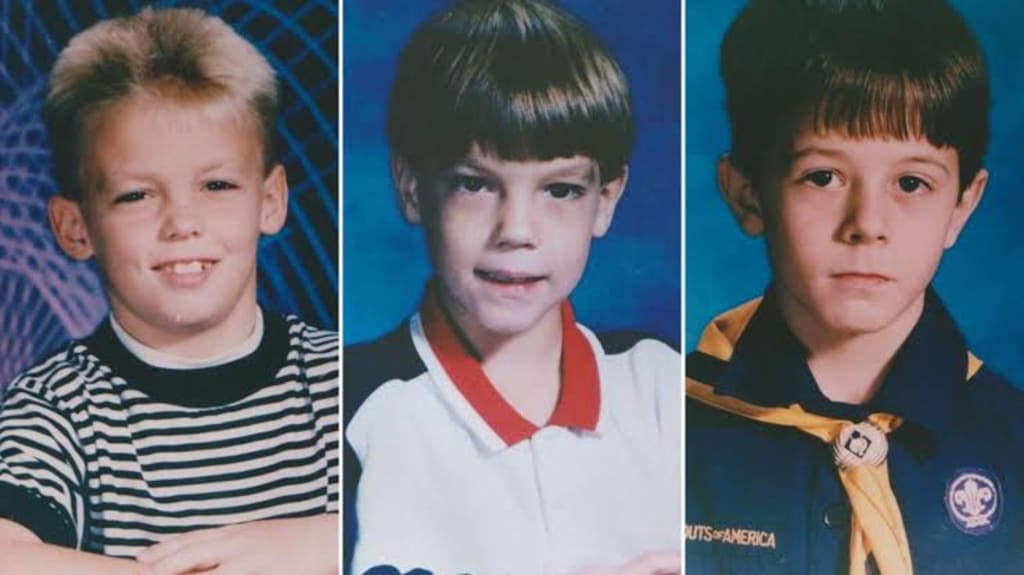The West Memphis Three: A Story of Injustice, Redemption, and Advocacy
Murders of three young boys in West Memphis

n 1993, the brutal murders of three young boys in West Memphis, Arkansas, shocked the nation and rocked the tight-knit community to its core. What followed would be a decades-long saga marked by allegations of police misconduct, coerced confessions, and the wrongful convictions of three teenagers—Damien Echols, Jason Baldwin, and Jessie Misskelley Jr.—known as the West Memphis Three.
The victims—eight-year-olds Stevie Branch, Michael Moore, and Christopher Byers—were found dead in a drainage ditch, bound and mutilated in a horrific manner. The gruesome nature of the crime sparked widespread fear and outrage, and pressure mounted on local law enforcement to bring the perpetrators to justice.
In the midst of a fervent search for answers, suspicion quickly fell on Echols, Baldwin, and Misskelley, three teenagers from the area who were known for their unconventional interests and outsider status. Despite a lack of physical evidence linking them to the crime, the West Memphis Three became prime suspects in the eyes of investigators.
The case against the teenagers was built on circumstantial evidence and Misskelley's coerced confession, which he later recanted, claiming it had been coerced by police during a marathon interrogation session. Despite the absence of DNA evidence or eyewitness testimony implicating them in the murders, Echols, Baldwin, and Misskelley were convicted in 1994.
The convictions sparked a firestorm of controversy, with many questioning the fairness of the trial and the validity of the evidence presented. The case garnered national attention, attracting the interest of advocacy groups, celebrities, and filmmakers who believed in the innocence of the West Memphis Three.
In 2007, new developments in the case reignited hope for justice. DNA evidence recovered from the crime scene failed to match any of the three teenagers, raising doubts about their guilt. Amid mounting pressure and public scrutiny, the Arkansas Supreme Court granted the West Memphis Three a new hearing to present evidence of their innocence.
In 2011, after nearly two decades behind bars, Echols, Baldwin, and Misskelley entered an Alford plea, a legal maneuver that allowed them to maintain their innocence while acknowledging that prosecutors had enough evidence to convict them. They were subsequently released from prison, bringing an end to a chapter of injustice that had haunted them for years.
The release of the West Memphis Three was a bittersweet victory, marked by mixed emotions of relief and lingering injustice. While they were free from the confines of prison, the stain of wrongful conviction remained, casting a shadow over their lives and futures.
Since their release, Echols, Baldwin, and Misskelley have worked to rebuild their lives and advocate for criminal justice reform. They have become outspoken critics of the legal system that failed them and have used their platform to raise awareness about wrongful convictions and the plight of the innocent incarcerated.
The case of the West Memphis Three serves as a stark reminder of the dangers of rushing to judgment and the flaws within the criminal justice system. It exposes the vulnerabilities of the legal process, from coerced confessions to faulty forensic evidence, and underscores the need for reforms to prevent similar miscarriages of justice in the future.
The West Memphis Three's story is one of resilience, perseverance, and the enduring quest for truth and justice. Despite the unimaginable hardships they endured, they refused to lose hope or surrender to despair. Their exoneration stands as a testament to the power of perseverance and the tireless efforts of those who championed their cause.
As we reflect on the case of the West Memphis Three, let us not only seek to right the wrongs of the past but also strive to create a more just and equitable future for all. Their journey from wrongful conviction to exoneration serves as a beacon of hope and a reminder that, even in the darkest of times, justice can prevail.






Comments
There are no comments for this story
Be the first to respond and start the conversation.